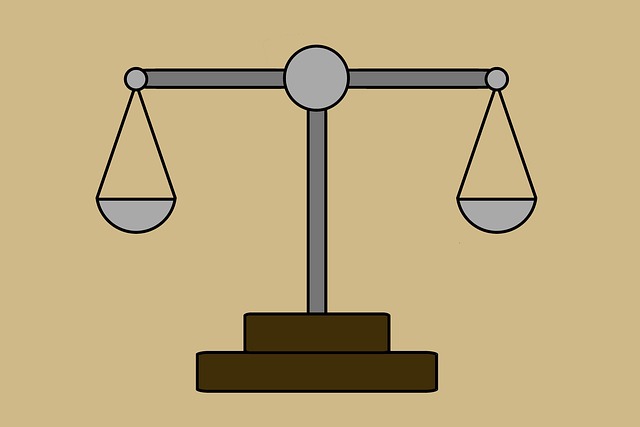Administrative hearings offer a fair and efficient alternative to jury trials for lesser criminal offenses and regulatory violations. Legal Representation in Administrative Hearings is crucial, especially in white-collar defense cases, as skilled attorneys navigate complex legal landscapes, ensure procedural fairness, and advocate for clients' rights throughout investigations and enforcement processes. In these hearings, an impartial officer makes decisions based solely on presented evidence, streamlining the legal system. Legal representation prepares individuals to challenge allegations, build robust defense strategies, and achieve favorable outcomes, even in high-stakes cases. Effective Legal Representation in Administrative Hearings can lead to dismissal or mitigated penalties, with appeals providing further substantiation of arguments for fairness and accuracy within the legal system.
In the intricate landscape of criminal law, administrative hearings play a pivotal role in determining outcomes. This article delves into the intricacies of legal representation during these proceedings, offering valuable insights for both practitioners and clients. We explore the significance of understanding administrative hearings, the strategies employed to ensure success, and the post-hearing process, including appeals. Armed with this knowledge, folks can navigate the system effectively, fostering a robust and fair criminal justice tapestry. The focus on legal representation as a game-changer underscores its importance in shaping outcomes.
- Understanding Administrative Hearings in Criminal Law
- The Role of Legal Representation in These Proceedings
- Preparing for an Administrative Hearing: Client Expectations
- Strategies and Tactics for Success in Criminal Law Cases
- Post-Hearing Outcomes and Appeals: What to Expect
Understanding Administrative Hearings in Criminal Law

Administrative hearings play a crucial role in Criminal Law, offering an alternative to traditional jury trials for certain offenses. These proceedings are designed to provide a fair and efficient process for resolving cases, especially in situations involving regulatory violations or less serious crimes. The primary advantage lies in their ability to ensure due process while streamlining the legal system.
In these hearings, individuals accused of criminal offenses have the right to legal representation, mirroring the defense strategies seen in jury trials. This includes the opportunity to present evidence, cross-examine witnesses, and argue for a complete dismissal of all charges if the facts warrant it. The administrative hearing officer acts as an impartial arbiter, making decisions based on the evidence presented, thus offering a balanced approach to justice.
The Role of Legal Representation in These Proceedings

The role of legal representation in criminal law cases, especially during administrative hearings, cannot be overstated. Skilled attorneys play a pivotal part in safeguarding individuals’ rights and ensuring fairness throughout the entire process, from the initial stages of an investigation to any subsequent appeals. They provide invaluable guidance and protection for those facing white collar defense charges, which often involve complex financial or corporate crimes.
Legal representation offers several key benefits. Firstly, lawyers can navigate the intricate legal landscape, interpreting laws and regulations that may apply to a particular case. This is crucial during administrative hearings where procedural errors can significantly impact the outcome. Secondly, they advocate for their clients’ interests, ensuring that their rights are respected and that any evidence presented is done so fairly and within legal parameters. Furthermore, legal representation enables individuals to have a powerful voice in all stages of the investigative and enforcement process, allowing them to challenge allegations and build a robust defense strategy.
Preparing for an Administrative Hearing: Client Expectations

Preparing for an administrative hearing is a crucial step in any legal process, especially in high-stakes cases involving legal representation in administrative hearings. Clients often expect their lawyers to guide them through this complex procedure, ensuring the best possible outcome. A skilled general criminal defense attorney will first assess the case’s unique circumstances and gather all relevant information. This includes reviewing any available documentation, understanding the regulations at play, and identifying potential arguments that could sway the decision in favor of the client.
Effective preparation involves strategic planning, thorough research, and clear communication with the client. Clients should be made aware of their rights, the potential outcomes, and the importance of presenting a compelling case. By managing expectations and providing a robust legal representation in administrative hearings, attorneys can navigate these challenging proceedings, aiming to avoid indictment or mitigate penalties for their clients.
Strategies and Tactics for Success in Criminal Law Cases

In criminal law cases, especially high-stakes ones like white collar defense, successful legal representation demands a strategic approach. Lawyers must be adept at navigating complex regulations and understanding the nuances of administrative hearings. One key strategy is thorough preparation; this involves meticulous research, gathering compelling evidence, and crafting robust arguments tailored to each case’s unique circumstances. A skilled attorney can uncover weaknesses in the prosecution’s case, challenge inadmissible evidence, and present a powerful defense that aligns with the law.
Tactics for success also include effective communication and persuasive oratory skills. Lawyers must clearly articulate their client’s story, ensuring it resonates with the judge or jury. This may involve using expert witnesses, visual aids, or compelling testimonials to achieve extraordinary results. In administrative hearings, where legal representation is crucial, the attorney-client relationship becomes a powerful asset; a well-respected lawyer can guide their client through the process, ensuring their rights are protected and their voice is heard, ultimately leading to favorable outcomes in even the most challenging criminal law cases.
Post-Hearing Outcomes and Appeals: What to Expect

After a thorough hearing, the outcome can vary greatly depending on the specifics of the case and the judge’s interpretation of the law. For those involved in criminal law cases, understanding the potential post-hearing outcomes is crucial. A skilled legal representative in administrative hearings can significantly influence the result, especially when advocating for a general criminal defense strategy.
If the charges are found to be unfounded or the evidence presented is insufficient, there is a possibility of achieving a complete dismissal of all charges. Across the country, appeals and retrials are common procedures that allow both parties to further substantiate their arguments. This process can be complex and time-consuming but serves as an essential check on the legal system, ensuring fairness and accuracy in criminal law cases.
In navigating criminal law cases, especially those involving administrative hearings, having competent legal representation is paramount. Understanding the intricacies of these proceedings, as outlined in this article, empowers individuals to prepare effectively and manage expectations. By employing strategic tactics and understanding post-hearing outcomes, clients can actively participate in their legal defense. The role of legal professionals remains crucial, ensuring fairness and advocacy throughout, with appeals providing a further layer of protection for those facing criminal charges.






